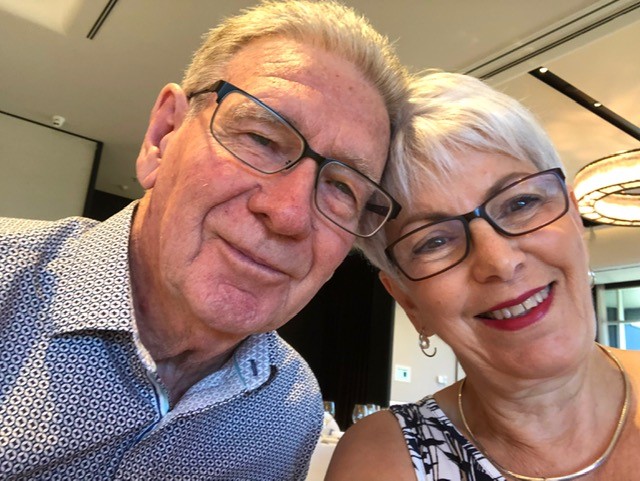David Lawrance was about to enjoy a glass of wine at the Qantas club lounge in a New Zealand airport when his wife, Sophia, suspected something was wrong.
The pair were in transit following a holiday in Fiji when David lost feeling in the complete right-hand side of his body.
“He went to get up to get a glass of wine to have with our lunch when he slumped back in the chair and said, ‘I can’t feel the right-hand side of my body’,” said Sophia.
“He told me, ‘I’ll be fine, it’s probably just a pinched nerve, you go do some shopping.’
“I pretended to go and shop but instead I went up to reception to tell them to call an ambulance because I thought my husband was having a stroke.”
David was, in fact, having a stroke, something that Sophia had suspected from remembering the early warning signs written on a magnet on their fridge back home.
Now, the pair are sharing their story during National Stroke Week (31 August – 6 September) to raise awareness on how the F.A.S.T test can save lives.
The F.A.S.T test involves these simple steps.
- Face: Check their face. Has their mouth drooped?
- Arms: Can they lift both arms?
- Speech: Is their speech slurred? Do they understand you?
- Time is critical. If you see any of these signs, call triple zero (000) straight away.
Although David himself thought he was fine, Sophia said it was her “women’s intuition” that tipped her off.
“I thought I was still feeling quite reasonable. I had no idea it was a stroke,” David said.
Statistics show one in four people globally will have a stroke in their lifetime, yet only 28% of people in the ACT reach a hospital within the critical 4.5-hour window for treatment.
National Stroke Week, and the Lawrances, aim to spread the F.A.S.T message far and wide with the pair giving talks at local Rotary clubs, and addressing hospital staff on the topic.
David said it was important to address the whole picture when someone suffers a stroke, including the carer’s role and the rehabilitation process.
“I think staff at the hospitals need to understand what it’s like from the sufferers because they hear the clinical stuff, but they don’t get the carers’ view,” he said.
“I would also like to see more of a long treatment plan, after the initial 90 days.”
David feared if it weren’t for his “fabulous GP” discovering the stroke was caused by a bleed on his brain, he would have had another stoke or aneurysm.
Now, however, David only has one fear: “I hope my wine is still there, sitting on the bar waiting for me when I go back.”



